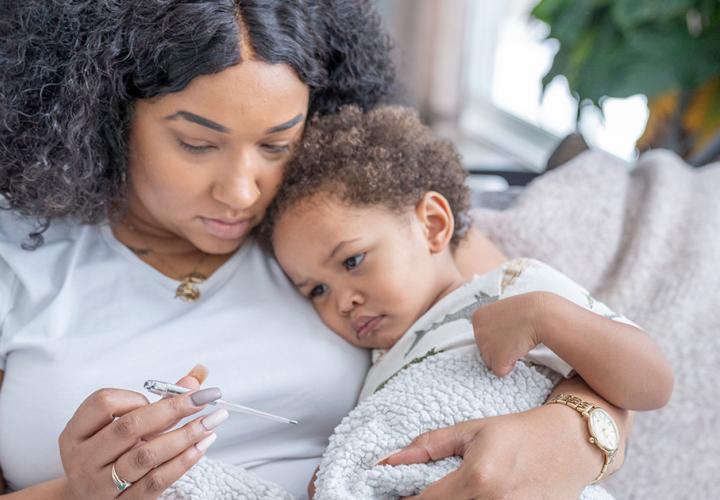What’s the best way to protect my child?
The vaccines are our best protection against severe illness, hospitalization and death from COVID-19. If your child is age 5 or older, get their COVID-19 vaccine today – and make sure the other people in your household are vaccinated and boosted too.
You should also up your family’s masks to N95, if possible, which appear to be more effective against Omicron.
What if my child isn’t old enough for a COVID-19 vaccine?
Take other available steps to protect them. You know the drill: Make sure every eligible family member is vaccinated and, once they’re eligible, gets their booster shot. Keep wearing masks for kids over the age of 2, practicing social distancing, and limiting the size of social gatherings. Make sure your child is caught up on other immunizations like the flu shot. And always keep your child home and call a doctor if they might be sick, or if they’ve been exposed to someone who’s infected.
How well do the current COVID-19 vaccines work against the Omicron variant?
From what we’re seeing, vaccinated individuals are more likely to get breakthrough infections and spread Omicron than previous variants. Some may even get sick with mild symptoms like a cold or flu.
But the vaccines still offer strong protection against severe illness, hospitalization and death from Omicron – the most important role of any vaccine. And boosters increase that protection.
Should my child wait to get their COVID-19 vaccine, in case a future vaccine is created specifically for the Omicron variant?
Please don’t wait. COVID-19 infections and hospitalizations are surging in our community, including among children. The current vaccines do a good job preventing severe illness. Your child needs protection now. The vaccine could mean the difference between a mild infection or no infection at all, versus a trip to the hospital.
Will COVID-19 booster shots help against the Omicron variant?
Yes, for all the reasons above. Every person who’s eligible for a booster should get one!
Besides the vaccine and other COVID-19 precautions, what can I do to keep my child healthy this winter?
Make sure your child’s immune system is as strong as possible, so they can fight off all kinds of illness.
- Get their flu shot ASAP, if they haven’t already. (It’s fine to get the flu shot and COVID-19 vaccine at the same time.)
- Watch for symptoms of RSV, which can be serious for babies and very young kids.
- As a family, work on nutritious meals, physical activity, and getting enough sleep. Every healthy habit helps.
And as always, stay in close contact with your child’s pediatrician. We’re here to support you.
